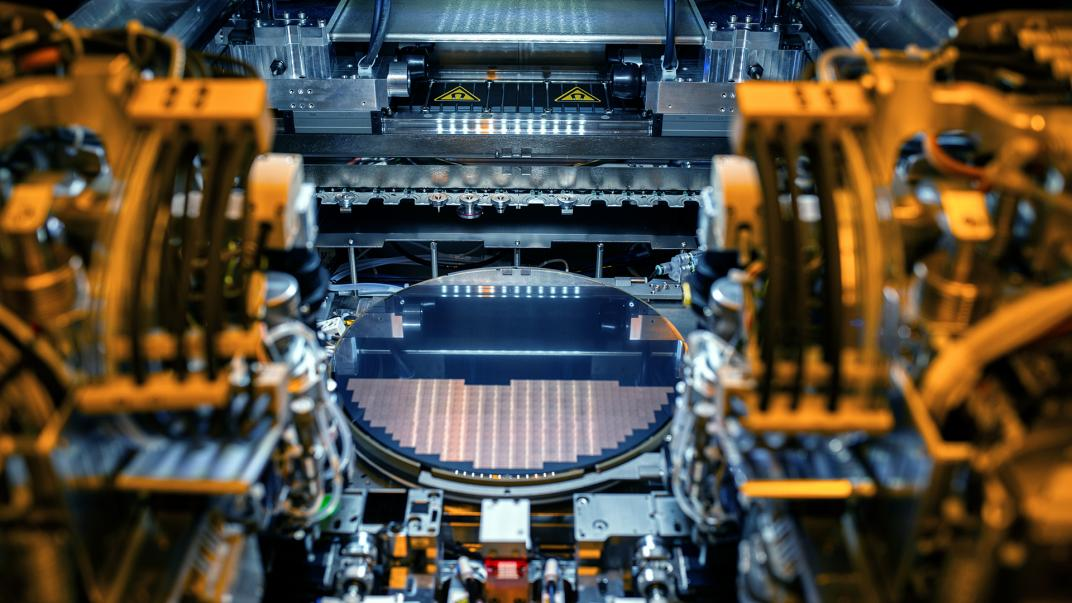 INFRA
INFRA
 INFRA
INFRA
 INFRA
INFRA
Updated with Intel statement on process nodes:
A new chip manufacturing process from Intel Corp. failed to meet Broadcom Inc.’s expectations in a recent evaluation, Reuters reported today.
The development may mark a setback for Intel’s foundry business. The unit uses the company’s fabs to make processors for other organizations based on their own custom designs. Broadcom, one of the world’s largest chipmakers, could potentially become a major source of foundry revenue for Intel.
Sources told Reuters that Broadcom is studying whether it can make chips using Intel’s upcoming Intel 18A process. The process is scheduled to enter production next year. According to today’s report, Broadcom received several prototype wafers made with Intel 18A last month and determined that the process is not yet ready for mass production.
In addition, though Intel cited “continued momentum” on the 18A process, it has decided to use an external chip foundry, likely Taiwan Semiconductor Manufacturing Co., to make its upcoming Arrow Lake processor family instead of its own 20A process. Intel itself will package the components of those chips into the processor.
Intel 18A introduces two main innovations not available in the company’s current chips. The first is a gate-all-around transistor design, while the other is a power management technology known as PowerVia.
The gate is the part of the transistor that manages how electricity flows through its structure. In Intel 18A, the gate fully surrounds the transistor to which it’s attached surrounds rather than only partly as before. This arrangement reduces the amount of electricity that leaks out of the transistor, which increases chips’ power-efficiency, and boosts performance in the process.
The other major feature of Intel 18A is a technology called PowerVia. Typically, the tiny wires that deliver electricity to a processor’s transistors are placed above them. PowerVia moves the wires below the transistors, which allows Intel to place transistors closer together and thereby include more of them in each chip to boost performance.
It’s unclear exactly why Intel 18A failed to meet Broadcom’s requirements.
There may be an issue with the yield, a metric used to track the number of chips that must be discarded because of production faults. Alternatively, the chips’ performance may have fallen short of Broadcom’s expectations. The speed of processors can vary significantly even if they share a common design and were manufactured as part of the same wafer.
Today’s report didn’t specify what chips Broadcom might seek to make with Intel 18A technology. Because of their steep cost, cutting-edge chip production nodes are typically only used to make high-end processors.
Broadcom may be considering having Intel produce its top-end processors for powering network devices. Those chips can process tens of terabits of data traffic per second as well as automate tasks such as fixing network bottlenecks. They’re used in, among other environments, artificial intelligence clusters.
Alternatively, Broadcom might be looking to use Intel 18A to make the custom AI chips it co-develops with customers such as Google LLC. According to a J.P. Morgan analysis cited by Reuters, those custom processors are expected to generate up to $12 billion in revenue for the company this year. That’s up from $4 billion in 2023.
Intel’s foundry unit lost $7 billion on $18.9 billion in sales during the 2023 fiscal year. Much of that revenue was tied to the production of the company’s own chips. Earlier this year, Intel projected that the unit would break even in 2027.
A dozen foundry customers are currently reviewing the Intel 18A node. Earlier this month, the chipmaker disclosed that the process moved a step closer to mass production after its engineers had successfully powered on a number of prototype Intel 18A chips. Moreover, they managed to boot operating systems on those chips.
Intel said in a statement following today’s report that “Intel 18A is powered on, healthy and yielding well, and we remain fully on track to begin high volume manufacturing next year.”
Broadcom stated that it’s “evaluating the product and service offerings of Intel Foundry and have not concluded that evaluation.”
Support our mission to keep content open and free by engaging with theCUBE community. Join theCUBE’s Alumni Trust Network, where technology leaders connect, share intelligence and create opportunities.
Founded by tech visionaries John Furrier and Dave Vellante, SiliconANGLE Media has built a dynamic ecosystem of industry-leading digital media brands that reach 15+ million elite tech professionals. Our new proprietary theCUBE AI Video Cloud is breaking ground in audience interaction, leveraging theCUBEai.com neural network to help technology companies make data-driven decisions and stay at the forefront of industry conversations.